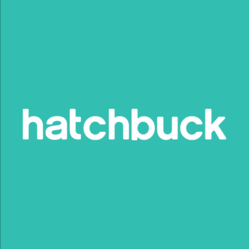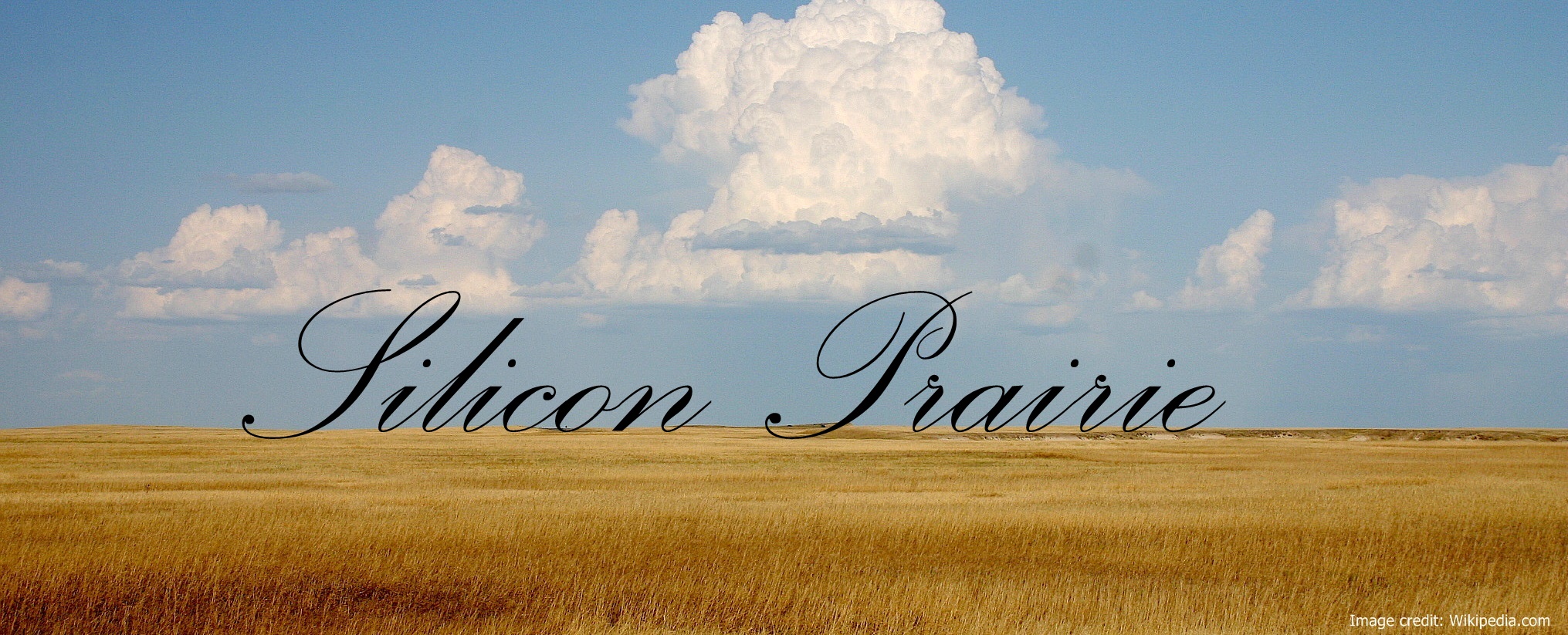Below is the product of a written interview with three C-level executives at Silicon Prairie startups in June of 2015.
 Jonathan Herrick – Chief Sales and Marketing Officer and Partner-Hatchbuck
Jonathan Herrick – Chief Sales and Marketing Officer and Partner-Hatchbuck
What’s the first thing you notice is the difference between startups in the Silicon Prairie, and those in Silicon Valley?
Startups in silicon prairie can raise money at the idea/mvp stage more easily, where as in the midwest Investors are looking for traction, revenue and results.
Back in 2012, Ben Milne had a hard time rounding up $1 million dollars for his, now, popular Dwolla mobile app. Has the investment climate changed since then?
I think it has. There has been a growth in the number of startups that have raised over 1 mil. In fact in 2013 over 33 companies in St Louis raise 1+ million according to a St. Louis startup and capital report. Also I think it helps to have strong vc firms such as Cultivation Capital, Drive Capital, Lightbank, Hyde Park Ventures here in the Midwest that are passionate about investing in Midwestern grown companies. Including Brad Feld with the Foundry group, which is a great supporter of entrepreneurs.
Getting seed capital has never been an issue but growth capital used to be somewhat of a challenge. But with the ecosytems/incubators in place , mentorship and early stage and growth capital. Startups have a greater chance of success. Cultivation Capital has been an investor and a huge part of our rapid growth.
What does the Silicon Prairie offer that Silicon Valley does not?
In Silicon Prairie you will find a lower cost of living, great schools, little to no traffic, and a great place to raise a family. Also there is a great sense of community here in the start up community. Everyone genuinely wants to help one another succeed. Not to say that isn’t available in Silicon Valley but it definitely present here.
Can a startup in Silicon Prairie remain there, or do they, at some point, necessarily need a big city presence?
I really believe so. Look at high growth companies like Exact Target based in Indiana and we grew our last company nearly 1000% here in St Louis until it was acquired. We started Hatchbuck in 2012 and with the resources in St. Louis and here in the Midwest we believe we have a tremendous opportunity with St Louis as our home base.
What trends (if any) are you seeing around tech talent relocating to the Prairie? How hard/easy is it to lure talent away from the big cities?
St. Louis has its own homegrown support system, including accelerators like Capital Innovators, Arch Angels, Arch Grants, Strong VCs like Cultivation Capital as well as T-REX- and CIC. These local resources have been integral to building St. Louis’s startup culture. Here in St. Louis, the 2000s have brought encouraging growth, netting a 35% increase of those in the 25-30 age range. Like SF and other high growth start up scenes, we are also making strides in developing talent locally, perhaps most notably through Jim McKelvey’s (founder of Twitter and Square) Launch Code program, which pairs up aspiring coders with experienced developers. Also in St. Louis we are fortunate to be in the center of four universities including Washington University with great access to bright young minds. What coastal hubs like Silicon Valley have managed to capture is what St. Louis continues to build – a strong presence of local resources. As St. Louis receives more attention from the coasts and continues to invest in our own startup ecosystem, we’re going to see a snowball effect that will further catalyze startup growth.
 Rick Knudtson – Chief Marketing Officer at Flywheel
Rick Knudtson – Chief Marketing Officer at Flywheel
What’s the first thing you notice is the difference between startups in the Silicon Prairie, and those in Silicon Valley?
The midwest is a historically conservative sector of the country. This tends to trickle down to the types of companies that are being built and financed on the Silicon Prairie. The companies you see around here are, more often than not, revenue producing at a very early stage. Investors like to see clear business models before they invest. The same is not always true in the Valley where you see many companies build large networks of users before ever monetizing. I don’t think that one way is better than the other – it’s just the nature of the types of investors and entrepreneurs in the area.
Back in 2012, Ben Milne had a hard time rounding up $1 million dollars for his, now, popular Dwolla mobile app. Has the investment climate changed since then?
It’s never easy to raise money – I think all entrepreneurs should know that. As an entrepreneur, you should never expect to not have a hard time financing your company. If it was an easy process, there would be more entrepreneurs on the campaign trail. That said, the climate has improved some in the last three years. There is a bit more access to early stage money through Angel groups and individual Angels learning that investing in high-growth startups can be a very rewarding and lucrative option. That said, later stage financing continues to be scare in the middle of the country. Most Midwest startups often have to go to the coasts when raising a Series A and beyond. Once there are some major exits in the area I think you’ll see that change.
What does the Silicon Prairie offer that Silicon Valley does not?
The Silicon Prairie has many great qualities the Valley lacks. The one you hear a lot about is the cost of living. It’s pretty simple but running a company in the Midwest is just plain cheaper. You can get more done with less money. The culture is also pretty unique. Companies and entrepreneurs in the Midwest tend to be heads down. In fact, a lot of companies here that would be glamorized as “startups” in the valley are simply smart people starting companies and solving problems. I’ve personally watched incredibly successful companies go entirely under the radar because they are so focused. The valley has a lot of lights and sounds. Lastly, contrary to popular belief, there is great talent here in the Midwest. We’re based in Omaha and the network of corporate giants like ConAgra, Fist National, First Data, and TD Ameritrade means an incredibly rich funnel for engineering talent. It’s still not easy to convince great engineers to work for your company – that’s just another problem entrepreneurs need to overcome when building their companies. Engineers are highly sought after wherever they are and it’s true in the Valley as well. The difference, and benefit, of being based on the Silicon Prairie is the engineers aren’t getting offers from five new sexy startups each week.
Can a startup in Silicon Prairie remain there, or do they, at some point, necessarily need a big city presence?
Startups in the Silicon Prairie can certainly remain here but people who are disappointed to see startups from the area leave to the coasts are mistaken to believe that it’s a negative thing. For companies to scale they need the right partners, the right market and thousands of other factors. Not every startup is going to find that in the Silicon Prairie. That said, any entrepreneur in the Midwest that believes the only way their company will succeed is to pack up and leave is also sadly mistaken. If that’s their key to success they have a long road.
What trends (if any) are you seeing around tech talent relocating to the Prairie? How hard/easy is it to lure talent away from the big cities?
Luring talent from anywhere to anywhere is hard. Like I mentioned before, this is just another problem entrepreneurs need to solve. The way to lure great talent to work for your company is to tell an incredible story. If that story is amazing personal growth opportunities, tell that. If it’s the fact that your city on the prairie is an amazing place to raise a family, tell that. What excites one person isn’t going to excite the next. I’m not sure I have seen any trends in the area but have seen many great people relocate to work on companies here in the Silicon Prairie. That must mean those companies are doing something right!
 Kevin Raheja – Head of Business Development at LeadPages
Kevin Raheja – Head of Business Development at LeadPages
What’s the first thing you notice is the difference between startups in the Silicon Prairie, and those in Silicon Valley?
Software is unique, in that you don’t have to be close to the people you are selling to. I don’t think it’s more challenging to build a business here than anywhere else. One thing that we noticed, is that entrepreneurs who have success in the Midwest, is that they’re not pampered with the over abundance of funding so their companies actually have to do things like… make money. So when they do receive venture capital, they have, in many instances, already figured out a scalable and profitable model.
Back in 2012, Ben Milne had a hard time rounding up $1 million dollars for his, now, popular Dwolla mobile app. Has the investment climate changed since then?
You have to be a bit scrappier in silicon prairie because funding doesn’t just fall out of the sky here, but I think overall, VC’s are realizing that geography just doesn’t matter anymore.
What does the Silicon Prairie offer that Silicon Valley does not?
Lower overhead with an abundance of innovation and talent.
Can a startup in Silicon Prairie remain there, or do they, at some point, necessarily need a big city presence?
Absolutely! LeadPages has grown from 0 to nearly 40,000 customers in about two years, and we currently have about 125 employees. We received an $11 mil series A funding which can definitely go a lot further here than in silicon valley. I think it’s generally important for a startup to be in an urban, walkable area. That’s where the millennials are, and that’s the best place to attract talent, but absolutely and with certainty, a startup does not need to move out of silicon prairie to be successful, and in fact we’re seeing the opposite… more entrepreneurs than ever are building successful, profitable startups by keeping them here and keeping overhead down.
What trends (if any) are you seeing around tech talent relocating to the Prairie? How hard/easy is it to lure talent away from the big cities?
If you’re by colleges and universities, you’re going to find talent. We have not found it difficult to find talent in the midwest. In fact, we’ve been able to hire and relocate people out of silicon valley because of what we’re building here at LeadPages, and also the tremendous cultural and economic value of living in the Midwest.



